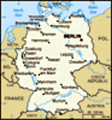Advertisement
Published: February 10th 2012

 A german market
A german market
Me eating some turkish snacksIch bin eine Berlinerin..
On the train, at some point between Manchester and Bolton, on the way home from Berlin, I heard the loudest sneeze ever, even louder than my dad's. And that's not the only reason I've considered myself lucky this weekend.
I was very appreciative to be asked to go to Berlin and experience a very time honoured German tradition; Karneval. It's not every day that a non-German has this kind of experience, an experience very much through the eyes of a local. The wanderer in me cannot ask for much more from a foreign country and its people, to be taken under their wing, to be accepted and for them to share their traditions and local customs. With that in mind, I set off apprehensive, but quietly energised, about the experience in store.
Karneval, or fasching as it's also known, is an age old German tradition. It is the
närrische Saison or the foolish season, the time leading up to Ash Wednesday and lent. It's the one time of year (save Oktoberfest) that the hardworking and sensible Germans really let their hair down. It starts on the 11th of November - a rather sombre
day here in the UK - although the main 'crazy' happens in the month before lent, with three weeks of almost endless parties, balls and drinking. Although Berlin may not be as famous for its karneval as say Cologne or the Rhineland, it was a truly surreal experience of cheesy music, strange costumes, German humour and karneval royalty.
I was invited to join in with this entertainment by a very good friend of mine who is hugely involved in the karneval of her home town - Dabendorf. She dances, as does her boyfriend, and next year she will be a wonderful karneval princess.
The karneval royalty consists of a
Prinz und Prinzessin and also a
Kinderprinz und Prinzessin. ; The older of the two pairs being young adults and the other pair being children or young teenagers. The prince and princess wear wonderfully expensive costumes and are on hand throughout the evening's celebrations to give awards and to lead dances.
In a typical German fashion there are long wooden tables lining the room, where you can sit and drink beer or sekt and eat
Currywurst und Pommes. From this perch in the corner, I watched the hours
of entertainment that the karneval club had offered to be savoured. It ranged from a woman in 50s housewife dress singing old German songs, to a group of young men taking their shirts off to the theme tune from two and a half men, from a man dressed in spotted tights, purple fluffy flip flops and an umbrella telling jokes to a group of young ladies prancing to the black eyed peas.
Everyone, I mean everyone, young and old alike dress in fancy dress; there were Vikings, bears, Scotsmen and women and even a whole group of mushrooms. I think the most surreal part of it all was the generation mix. Young and old alike enjoy this celebration, they dance together, make jokes together and enjoy their time together, and if you ask me, that's something severely lacking in our modern British society. Apart from Christmas, when do you actually
hang out with old people?
The morning after was a rather tepid affaire, many were nursing sore heads after the night of debaucheries. But by the afternoon we were all back on track and ready to undertake another German tradition; ice skating on a lake. Something I’ve never
had the chance to do (and will probably never do again) It was much harder that rink skating, although the snow did help to soften the fall. I had a date with the floor no more than 3 times in the hour we spent on the lake, but that was 3 more times than anyone else there! Hundreds of Germans mingled about on the ice, from toddlers to the middle aged, Playing ice hockey, chatting or just generally messing around.
This past weekend in Berlin was a truly surreal experience and I genuinely consider myself lucky to have been invited. It's not often we see life as a local, not even in our own country and I hope, that as I continue to make friends all over the world, I'll have the chance
to be a local over and over again.
As the soil, however rich it may be, cannot be productive without cultivation, so the mind without culture can never produce good fruit” Seneca
Advertisement
Tot: 0.134s; Tpl: 0.009s; cc: 7; qc: 46; dbt: 0.059s; 1; m:domysql w:travelblog (10.17.0.13); sld: 1;
; mem: 1.1mb







